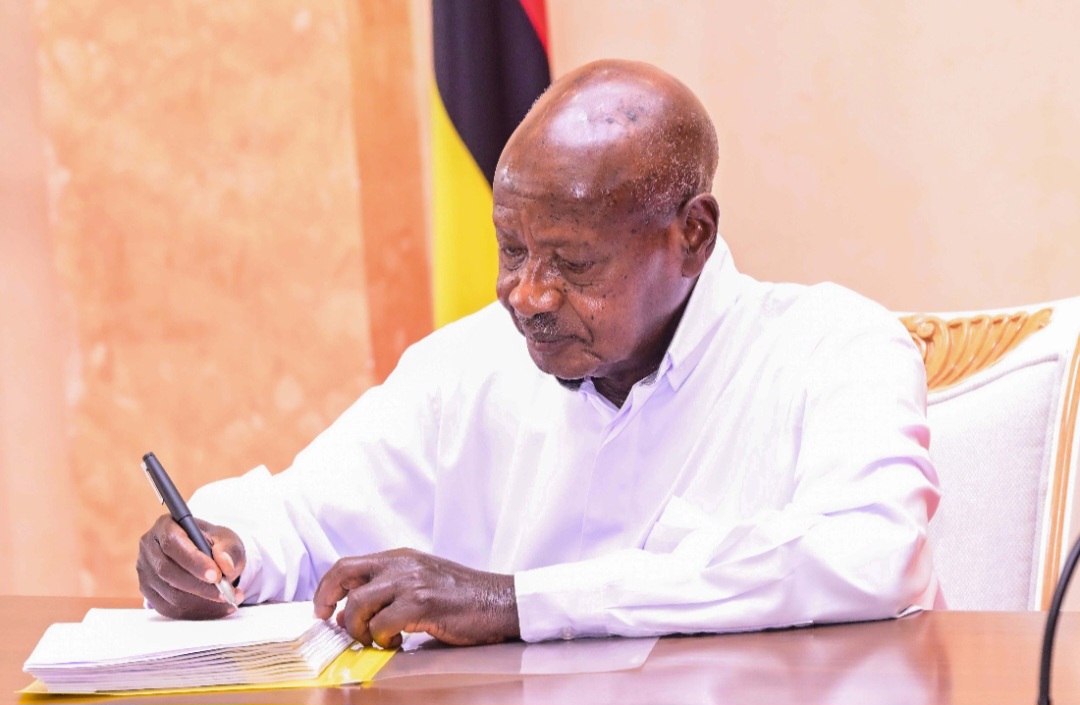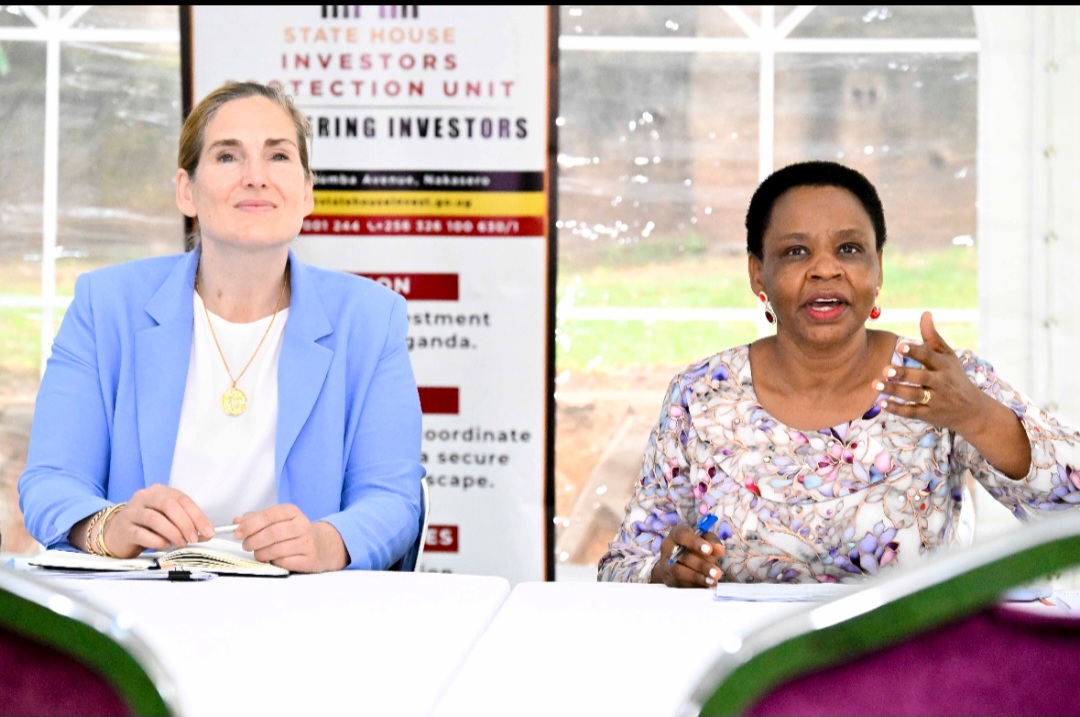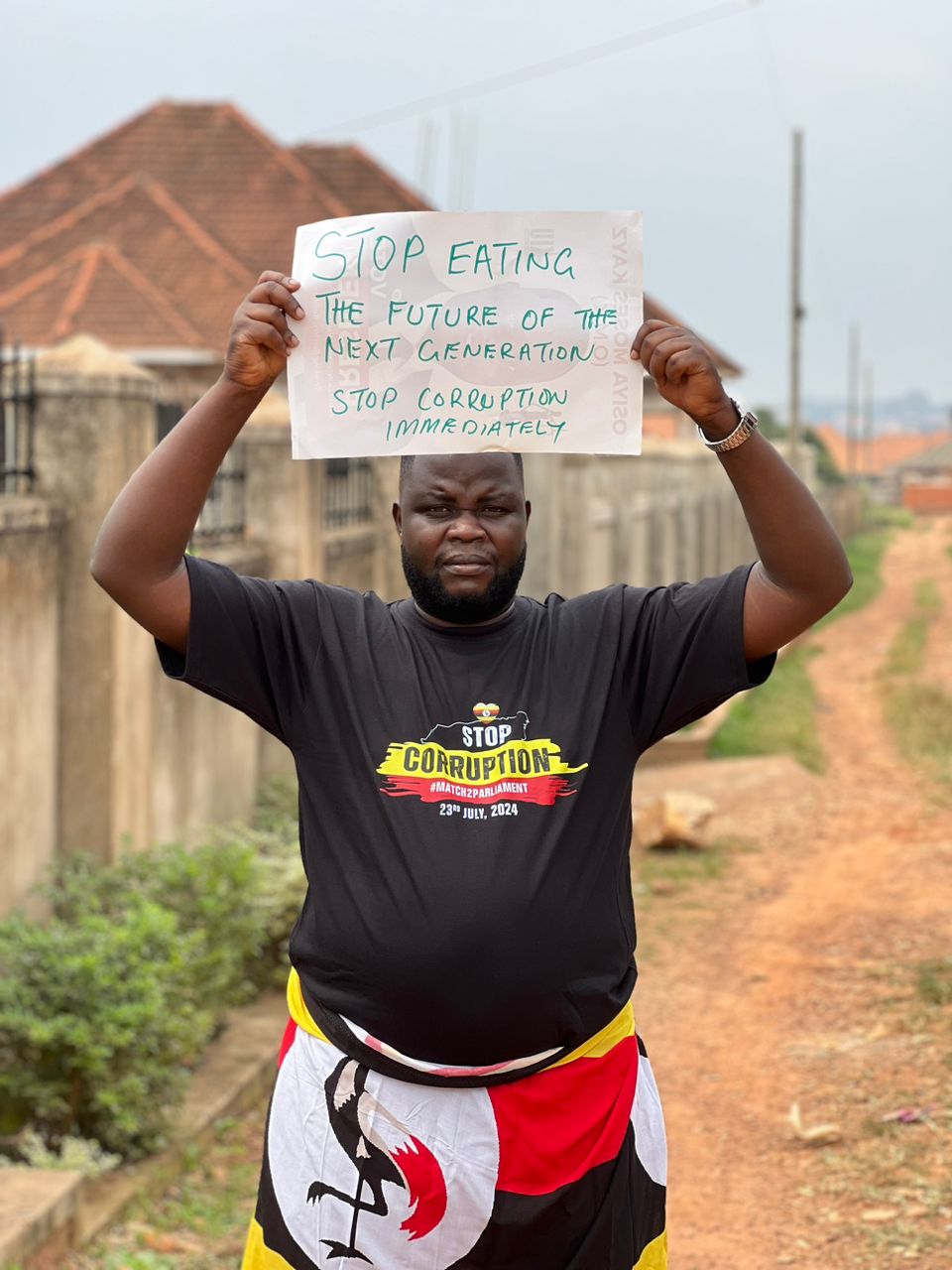President Yoweri Kaguta Museveni has today signed the Sugarcane (Amendment) Bill, 2023, into law, calling for cooperation between sugar millers and growers for a prosperous industry.
“If you don’t want to kill this industry, you should all cooperate because if you don’t cooperate, the sugar factories will collapse, and once they collapse, even new farmers will have nowhere to sell the sugar. But also, it is not good for the sugar processors, too,” President Museveni said.
The Sugarcane (Amendment) Bill, 2023, was passed by parliament last month, after additional consultations involving farmers, millers, and Members of Parliament from sugarcane-growing areas of Buganda, Busoga, Bunyoro, and Acholi on contentious issues that include the composition of the council, the sugarcane pricing formula, and the funding of council activities.
Before the signing, the Minister of Trade, Industry, and Cooperatives, Hon. Mwebesa Francis, informed President Museveni that the Bill provides for self-regulation of the Sugar Industry Stakeholders Council as provided in the Sugar Act of 2020.
The council will be composed of the chairperson and four representatives of farmers, three representatives of millers, the Permanent Secretary of the Ministry responsible for trade or his or her representative, the Permanent Secretary of the Ministry responsible for Agriculture or his or her representative, and the Permanent Secretary of the Ministry responsible for Finance or his or her representative.
“The chairperson will be a person with sufficient knowledge about the sugar industry and selected from millers and farmers representatives on a rotational basis and serve for two years,” Minister Mwebesa said, adding that the rationale for the above consideration was to give farmers more representation on the council and ensure that no group monopolizes the office of chairperson of the council.
“Appointing a chairperson on a rotational basis avoids dominance and fosters a spirit of cooperation and collaboration. In addition, ensure that the chairperson’s responsibility is to make more inclusive decisions,” he added.
A sugar development fund with contributions from millers and outgrowers in the ratio of 70% to 30% will also be established to fund the council activities.
During the meeting, President Museveni was also informed that sugarcane millers will share proceeds from sugar and its by-products with farmers.
“I am now satisfied. The processors indeed get more value from the cane than just sugar. They also get ethanol and electricity. So, I think this is a good formula. I can now sign the law,” President Museveni noted.
He urged sugar millers not to lure poor people, especially those with less than four acres of land, into sugarcane growing, saying that they should stick to the seven activities under the 4-acre model.
“These include one acre for coffee, one acre for fruits, an acre for pasture for dairy cows, and an acre for food crops. They can also consider raising poultry in the backyard for eggs, piggery, and fish farming for those near the swamps.”
The Deputy Speaker of Parliament, Rt. Hon. Thomas Tayebwa, thanked President Museveni for the guidance on the Bill.
“When you presented this bill to Parliament through your minister, we risked in between, and we had issues of contention. And when I called you, you said that you don’t proceed with the bill until you reach consensus, so we had to go back and start on the mediations,” Dr. Hon. Tayebwa said.
The signing ceremony was also witnessed by the third deputy Prime Minister, Hon. Rukia Nakadama; the Minister for Presidency, Hon. Babirye Milly Babalanda; the Minister of State, Trade (Industry), Hon. David Bahati; Members of Parliament from sugarcane growing areas; and leaders of sugarcane growers’ associations from Buganda, Busoga and Bunyoro.
Do you have a story in your community or an opinion to share with us: Email us at Submit an Article








